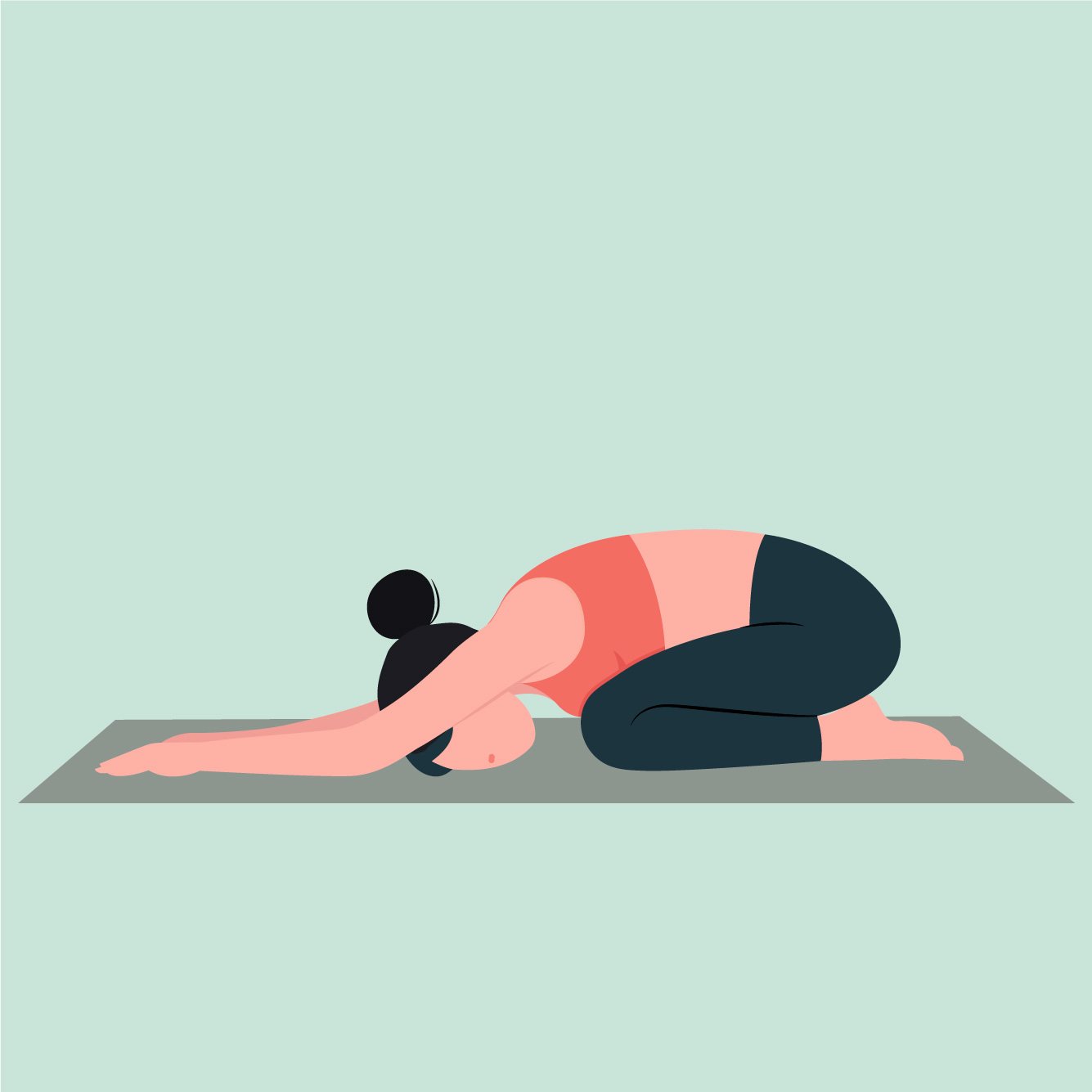Postpartum Recovery: How To Promote Healing Early On
How we care for our bodies immediately following a significant injury, trauma, or surgery impacts both short-term and long-term results. Giving birth, whether it was a vaginal delivery or c-section, is a major life event with an enormous physical, mental, and emotional demand. Addressing components that allow our body to heal optimally, like nervous system regulation, nutrition, and sleep, can be vital to helping you feel your best.
NERVOUS SYSTEM REGULATION
We have two main divisions of our nervous system that control nearly everything in our body: sympathetic (fight or flight) and parasympathetic (rest and digest). We chose to fight to bring a baby into the world, as all systems were working on overdrive to birth your child. Now, it’s time to move the dial in the opposite direction, from sympathetic (fight) to parasympathetic (rest), to support relaxation and allow you to recover. Below are five tips that help our brain drive our body toward recovery:
1. Reduce Stress
You may think I am crazy for putting this here, but this is truly important to optimize healing. At this time, reducing stress may require asking for help to manage your newborn and taking some time for yourself. This can look like playing your favorite relaxing music, lounging on the couch with your baby (or alone), or taking time away from caring for your newborn and doing something you enjoy. Don’t forget about all the things that make you feel like you, and take the moments you can to do those things. Remember: there is no shame or guilt in taking care of ourselves to recharge, as we cannot optimally care for our children or others when we have nothing left in the tank. As they say on the airplane, put your oxygen mask on first before assisting others.
2. Breathe
Breathing is the key that unlocks our parasympathetic drive. Controlled breathing can stimulate the vagus nerve response to calm our sympathetic nervous system. An excellent starting technique is box breathing, where you inhale through the nose for 4 seconds, hold the inhale for 4 seconds, exhale through the mouth for 4 seconds, and hold the exhale for 4 seconds. Make your way around the box 5 times and check in with how you feel. You may notice your heart rate is lower, your mind is quieter, and you feel more at ease. Try this whenever you feel stressed, anxious, or nervous. Your breath is your weapon to control the nervous system.
3. Nutrition
Avoiding stimulants like caffeine and processed sugar can promote both brain and body relaxation. Additionally, avoiding things like alcohol and refined carbohydrates can help promote healing (but you do you; the key is balance). If you are interested in more details, there is further information below about specifics on nutrition to promote overall healing postpartum.
4. Calming Activities You Enjoy
What centers you, makes you happy, or helps you wind down? This can be anything from watching the sunset to painting to singing along to your favorite tunes. Do something you love, and do it as often as you can. Remember, your mask first.
5. Practice Gratitude
This is a hectic time. It can all be overwhelming with the whirlwind of physical, mental, and emotional changes. Know that this time will soon pass. Starting a gratitude journal can reframe your circumstances, assist in controlling stress and anxiety, and encourage parasympathetic nervous system drive. Remember: our mindset and how we think about our circumstances drive our emotional responses. If we can learn to consistently reframe how we think about and subsequently meet the challenges of parenthood, we will feel less stressed, less overextended, and more capable of doing all the things we need to. Approaching or reflecting on any circumstance through a lens of gratitude can help in tremendous ways.
NUTRITION
Modifying your diet to aid in recovery can be extremely helpful in promoting healing. Below are some suggestions to ensure you get enough essential nutrients to recover. This general advice comes from a licensed dietitian with whom we work with closely.If you have specific questions or concerns, I recommend consulting with a registered dietitian.
1. High Protein Intake - 1 gram per pound of body weight is ideal. Your body will be in a catabolic state (breaking down molecules to release energy) at this point and needs protein to refuel post-delivery.
2. Water - Women’s bodies are approximately 55% water, so staying hydrated is vital for optimal function and recovery of your body’s systems. An adequate fluid intake is estimated to be half your body weight in ounces of water (for example, if you weigh 140 pounds, drink 70 ounces of water). It is recommended to add 10 ounces (about another glass of water) if you are breastfeeding. This is crucial when breastfeeding and will assist in flushing out excess toxins while keeping your metabolism running at healthier rates.
3. Calories - You will need at least 300-500 more calories per day than your current total daily energy expenditure (TDEE) to support anabolism better (building up muscle and bone), tissue regeneration, and energy/nutrient needs of both mother and baby from breastfeeding. Aim to get your calories from high-quality, whole foods.
4. Iodine and Choline- The Dietary Guidelines for Americans recommend that lactating parents consume 290 mcg of iodine and 550 mg of choline daily throughout the first year postpartum. Iodine can be found in dairy products, eggs, seafood, or in iodized table salt. Choline can be found in dairy and protein food groups, such as eggs, meats, some seafood, beans, peas, and lentils.
5. Antioxidants and Anti-Inflammatory Agents- Vitamin B, C, and E, zinc, and omega-3 fatty acids aid in reducing inflammation and improving wound healing. Getting enough of these nutrients can be easily achieved by taking a quality multivitamin approved by your OB/GYN.
6. Calcium and Vitamin D - These vitamins aid in improving and maintaining bone mineral density. Additionally, vitamin D is essential to infant growth and development and is supplemented in most infant formulas. If you are breastfeeding, you may want to discuss the need for vitamin D and calcium supplementation with your physician to address your specific needs.
7. Glucose Control - Glucose and insulin levels will be elevated during pregnancy and need to be normalized so that your body can focus on collagen synthesis and tissue repair. A high-fiber diet with whole grains while limiting added/refined sugars or simple carbohydrates can assist in normalizing these levels. Additionally, smaller, more frequent meals versus larger, more infrequent ones will be better for glucose control.
SLEEP
This is a complex topic to tackle with a newborn. Rest and sleep in the immediate postpartum period are necessary for physical healing, recovery, and emotional balance. Ideally, we aim to get at least 6-7 hours, with a goal of 8-9 of sleep a night. However, this can be challenging (to say the least) while managing a newborn or working toward a consistent sleep schedule.
Studies show that a woman's average sleep during the first 8 weeks postpartum varies tremendously but averages around 6.5 hours per night. Nearly 60% of new moms report problems with sleeping. Not only does adequate time and quality of sleep impact our body’s ability to heal, but poor sleep is also associated with postpartum depression.
Professional newborn sleep consultants can help if you have significant difficulty in this arena. Don’t beat yourself up if this seems completely unrealistic in your current season - we know it can feel impossible to get enough sleep in the early years of parenthood. Remember our guidelines, and try to catch some shut-eye whenever possible. When your baby sleeps, you should sleep.
Remember, you must put your mask on first before assisting others. Think about what that means to you, start to accept this analogy, and remember it throughout your journey of motherhood. Start by picking one item from the tips above that resonates with you the most and work towards adding more gradually. You got this Mamma!
REFERENCES
Anderson K, & Hamm RL. Factors that impair wound healing. Journal of the American College of Clinical Wound Specialists. 2012; 4(4), 84-91.Saptawati B, Clémentine M, Isabelle G, Rizki P; Pregnant and Breastfeeding Women: Drinking for Two?. Ann Nutr Metab. 2017; 70 (Suppl. 1): 13–17.
Bordoni B, Purgol S, Bizzarri A, Modica M , & Morabit B. The influence of breathing on the central nervous system. 2018; Cureus, 10(6).
Dørheim SK, Bondevik GT, Eberhard-Gran M, Bjorvatn B. Sleep and Depression in Postpartum Women: A Population-Based Study, Sleep. 2009 32(7). 847–855.
Dude A, Niznik CM, Szmuilowicz ED, Peaceman AM, & Yee LM. Management of diabetes in the intrapartum and postpartum patient. American journal of perinatology. 2018. 35(11), 1119-1126.
Gomez-Pinilla F & Gomez AG.The influence of dietary factors in central nervous system plasticity and injury recovery. 2011; PM&R, 3(6), S111-S116.
Guintivano J, Manuck T, & Meltzer-Brody S. Predictors of postpartum depression: a comprehensive review of the last decade of evidence. Clinical obstetrics and gynecology. 2018. 61(3), 591.
Maternal Diet. www.CDC.www.cdc.gov.
Other Posts You Might Like
















